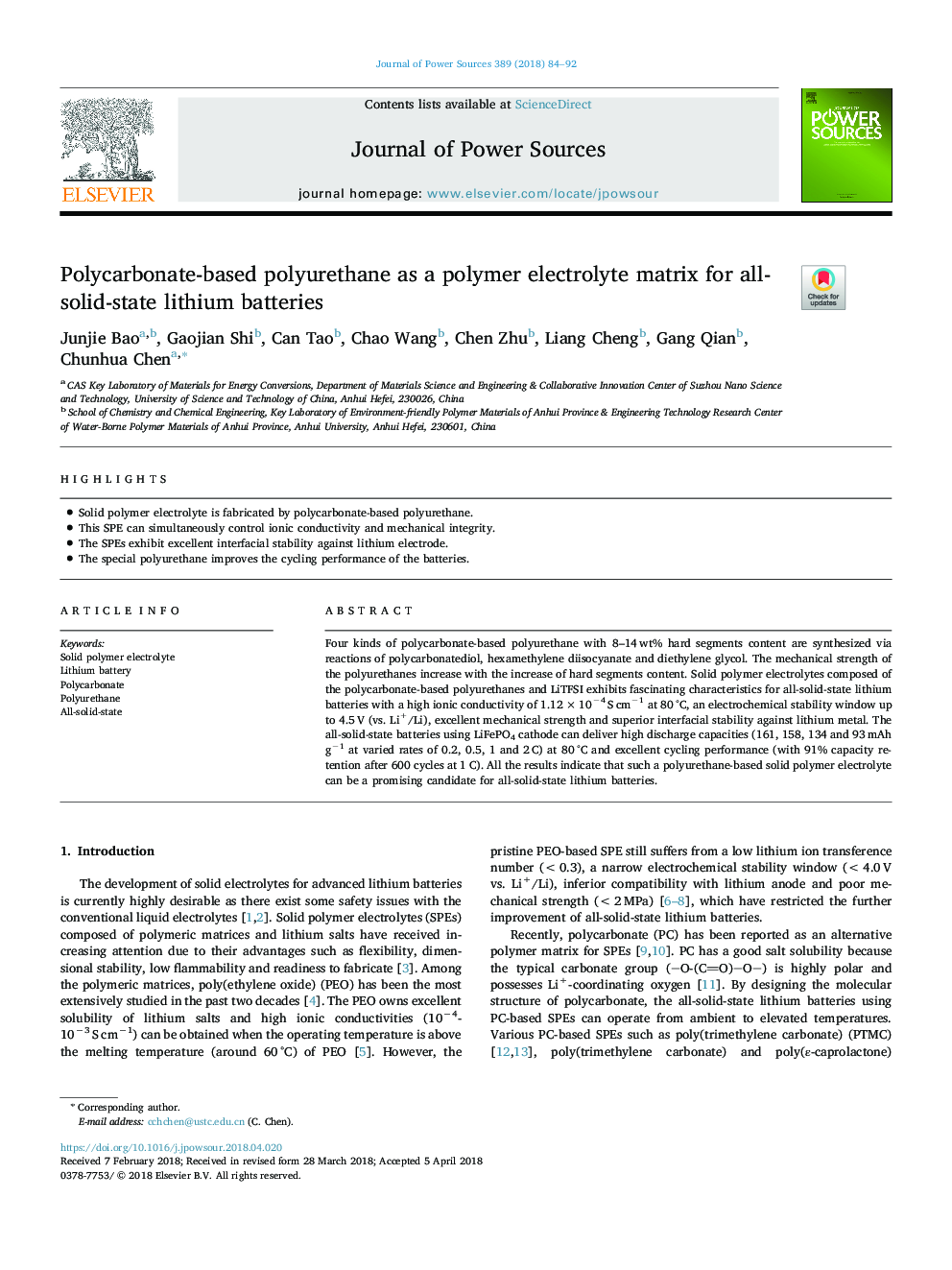| Article ID | Journal | Published Year | Pages | File Type |
|---|---|---|---|---|
| 7725254 | Journal of Power Sources | 2018 | 9 Pages |
Abstract
Four kinds of polycarbonate-based polyurethane with 8-14â¯wt% hard segments content are synthesized via reactions of polycarbonatediol, hexamethylene diisocyanate and diethylene glycol. The mechanical strength of the polyurethanes increase with the increase of hard segments content. Solid polymer electrolytes composed of the polycarbonate-based polyurethanes and LiTFSI exhibits fascinating characteristics for all-solid-state lithium batteries with a high ionic conductivity of 1.12â¯Ãâ¯10â4â¯Sâ¯cmâ1 at 80â¯Â°C, an electrochemical stability window up to 4.5â¯V (vs. Li+/Li), excellent mechanical strength and superior interfacial stability against lithium metal. The all-solid-state batteries using LiFePO4 cathode can deliver high discharge capacities (161, 158, 134 and 93â¯mAh gâ1 at varied rates of 0.2, 0.5, 1 and 2â¯C) at 80â¯Â°C and excellent cycling performance (with 91% capacity retention after 600 cycles at 1â¯C). All the results indicate that such a polyurethane-based solid polymer electrolyte can be a promising candidate for all-solid-state lithium batteries.
Related Topics
Physical Sciences and Engineering
Chemistry
Electrochemistry
Authors
Junjie Bao, Gaojian Shi, Can Tao, Chao Wang, Chen Zhu, Liang Cheng, Gang Qian, Chunhua Chen,
